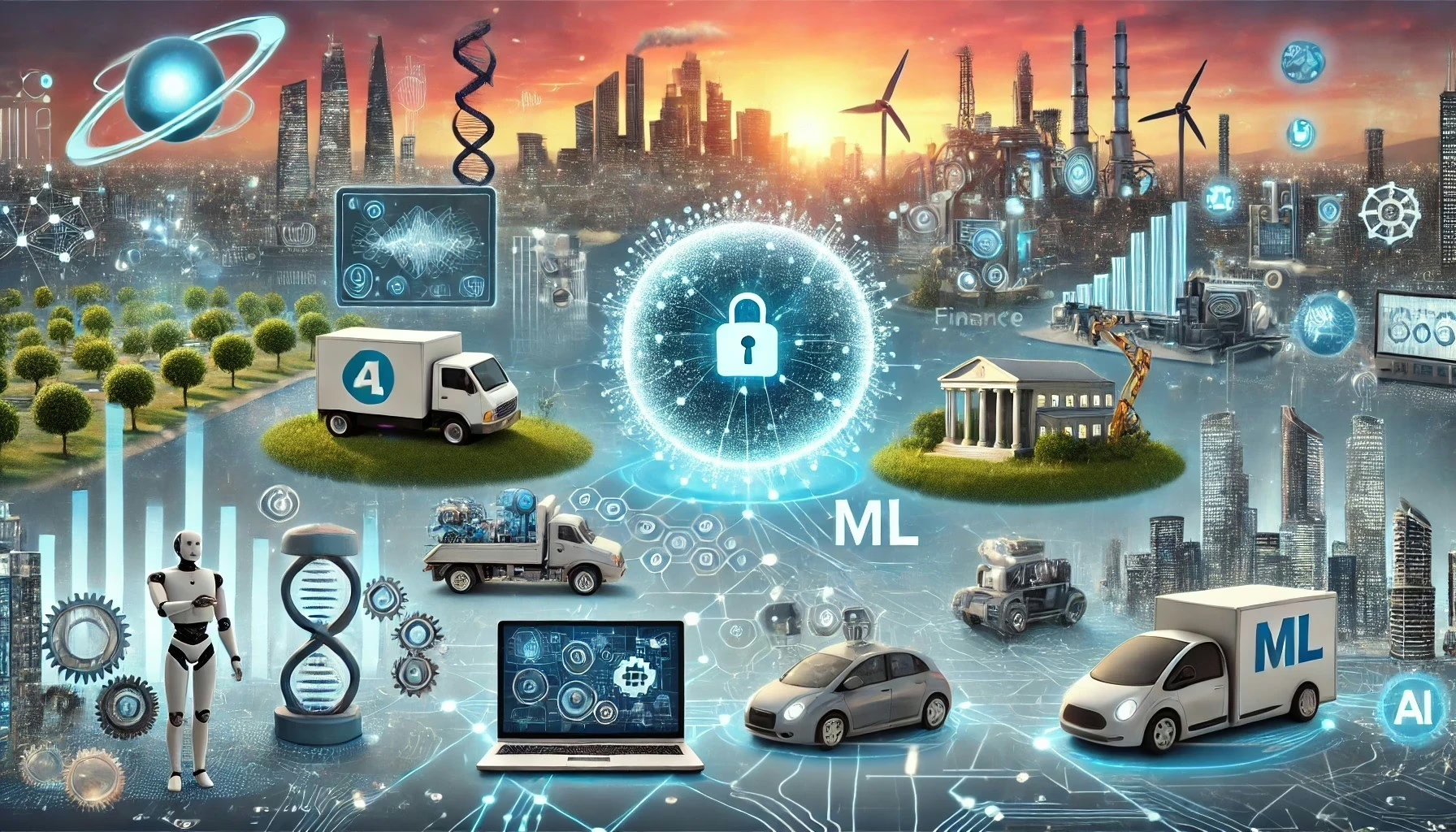Artificial Intelligence (AI) and Machine Learning (ML) are no longer mere buzzwords; they are transformative technologies reshaping industries at an unprecedented pace. From healthcare to finance, retail to transportation, the impact of AI and ML is profound, compelling businesses to adapt or risk obsolescence. This article explores the revolutionary role of AI and ML across various sectors and underscores the imperative for businesses to embrace these technologies.
The Ascendancy of AI and Machine Learning
Historically, AI and ML were seen as futuristic, the stuff of science fiction. Today, advancements in technology and the explosion of data have brought these concepts into mainstream application. AI, which enables machines to perform tasks that typically require human intelligence, and ML, a subset of AI that involves machines learning from data, are now integral to business operations.
The surge in data generation has been a significant catalyst for the rise of AI and ML. With the proliferation of devices and sensors, businesses now possess vast amounts of data that can be harnessed to train machine learning algorithms. This data-centric approach allows for more informed decision-making, process automation, and accurate future outcome predictions.
Industries traditionally dependent on manual processes and human expertise are now leveraging AI and ML for efficiency and innovation. In healthcare, AI-powered diagnostic tools are enhancing patient care by analysing medical images and detecting patterns that might elude human doctors. In finance, ML algorithms are employed to identify fraudulent transactions and optimise investment strategies. The scope of AI and ML is extensive, offering businesses that adopt these technologies a competitive advantage.
Addressing Concerns and Ethical Implications
While the benefits of AI and ML are substantial, their rise also raises concerns about job displacement and ethical considerations. As machines become capable of performing tasks once reserved for humans, there is a legitimate fear of job obsolescence. Furthermore, the use of AI in decision-making processes has sparked debates about bias and transparency. It is crucial for businesses to tackle these challenges by ensuring that AI and ML are deployed responsibly and ethically.
Despite these challenges, the rise of AI and ML presents unparalleled opportunities for industry transformation and innovation. By harnessing these technologies, businesses can unlock new revenue streams, enhance efficiency, and provide personalised customer experiences. The time to embrace AI and ML is now, as technological advancements continue to accelerate.
Industry Disruption: A Call to Adapt
Industries must prepare for imminent disruption driven by AI and ML. From manufacturing to marketing, no sector is immune. Businesses that do not adapt will find themselves outpaced by competitors leveraging AI and ML for strategic advantage.
In manufacturing, AI and ML are revolutionising production processes by optimising workflows, predicting maintenance needs, and reducing downtime. Smart factories, equipped with AI-powered robots and sensors, operate with greater efficiency and precision, resulting in cost savings, improved product quality, and faster time-to-market.
In marketing, AI and ML enable businesses to better understand and engage with their customers. By analysing customer data and behaviours, businesses can create targeted marketing campaigns that resonate more effectively. AI-powered tools, such as recommendation engines and chatbots, are transforming customer interaction and driving higher conversion rates.
The transportation sector is also experiencing significant disruption from AI and ML. Self-driving cars, powered by sophisticated AI algorithms, promise a safer and more efficient alternative to traditional vehicles. Ride-sharing companies are using ML to optimise routes, predict demand, and enhance the overall customer experience. The era of human drivers may soon be eclipsed by AI-driven vehicles.
Conclusion
AI and ML are reshaping industries with an unstoppable force, and businesses must adapt or risk being left behind. These technologies offer unprecedented opportunities for transformation and innovation but also pose challenges related to job displacement and ethical use. As industries brace for disruption, it is clear that businesses that embrace AI and ML will thrive in this new era. The future is here, and it is powered by AI and Machine Learning.
Are you prepared for the rise of the machines?







